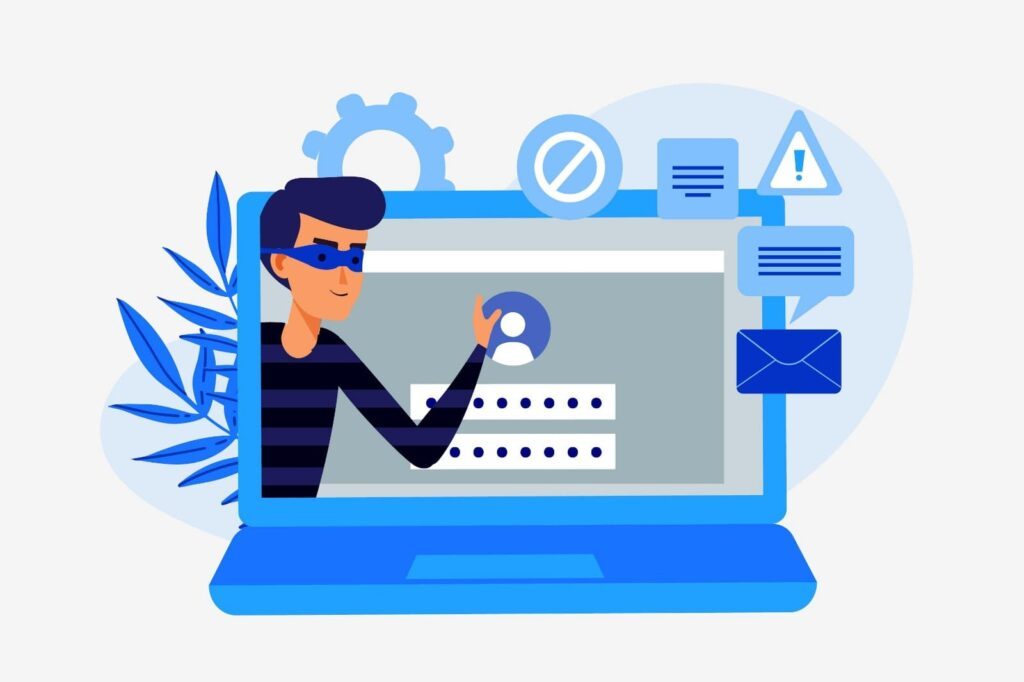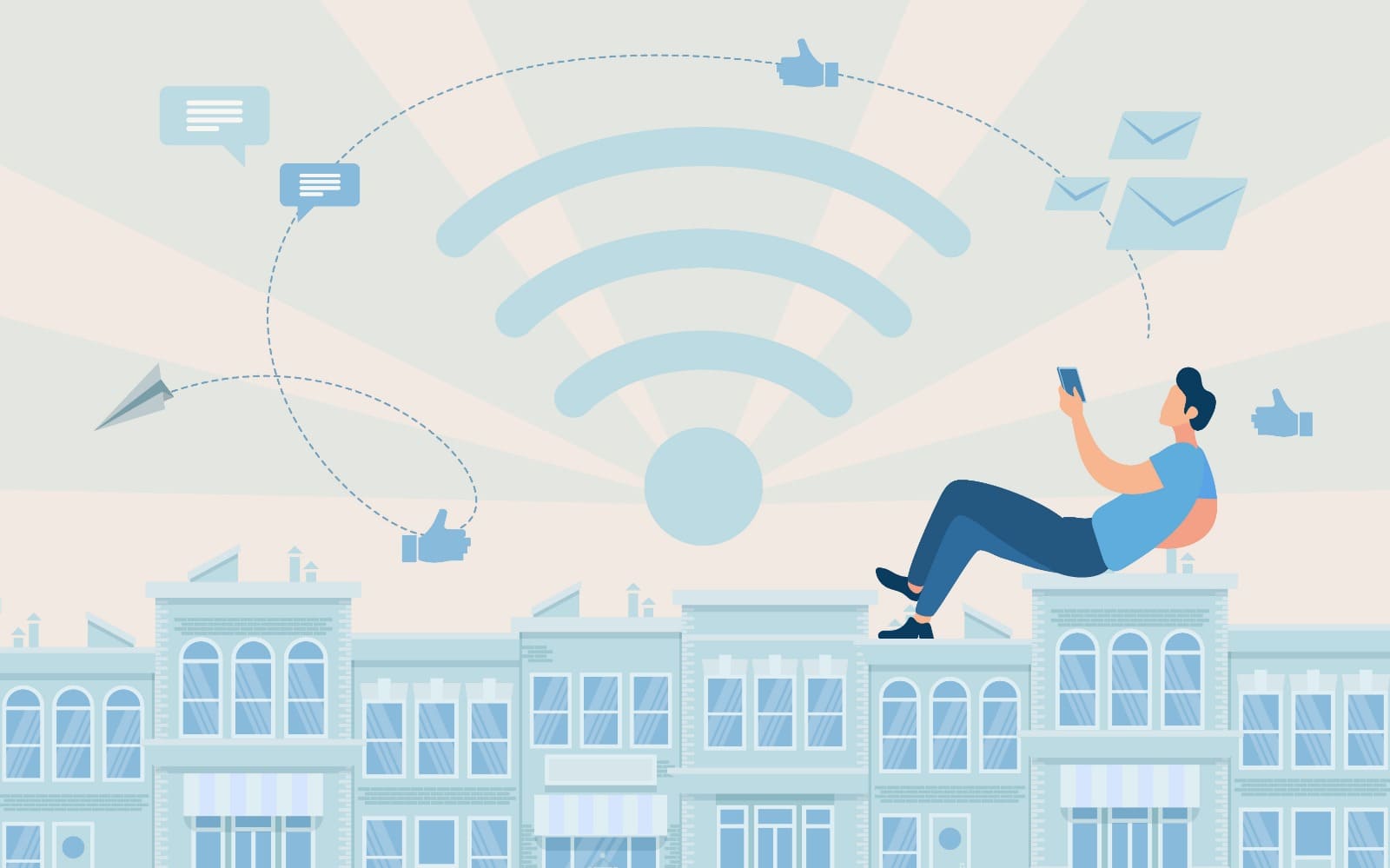In today’s increasingly interconnected world, access to public Wi-Fi has become ubiquitous and indispensable for our modern way of life. Using public Wi-Fi networks is a common practice for many of us, whether it’s at a coffee shop, airport or hotel. However, the convenience of such access can be deceptive, as public Wi-Fi comes with a significant risk to our online security. These networks are often unsecured, making it easy for hackers and cybercriminals to intercept our data and steal personal or business information.
Public Wi-Fi networks pose a significant cybersecurity threat, as they are highly vulnerable to cyberattacks. Cyber Octet, provider of Cyber security course in ahmedabad have compiled a list of the risks associated with public Wi-Fi and ways to stay safe.
Online Profiling and Identity Theft
Public Wi-Fi networks pose a serious risk to the security of your personal information, as they can allow hackers to easily obtain enough information to create targeted cyberattacks and phishing emails, search for your passwords on the Dark Web, or compromise your online accounts. Hackers can intercept your data over public Wi-Fi and potentially access your recent location data, personal information such as your interests, job, and marital status, as well as detailed financial information about your bank and credit accounts.
To Stay Safe
To keep your data safe while using public Wi-Fi, it’s crucial to use strong encryption, such as a VPN, when connecting to any Wi-Fi hotspot, including your own. This will help prevent the exposure of your data and protect you from cyber-attacks.
Malware Threat to the Devices
Utilizing an unprotected public hotspot can make your device vulnerable to the infiltration of malicious software (malware) by malicious attackers. These perpetrators may insert malware into an advertisement displayed on a seemingly benign website, lure you into providing personal information through a phishing form, or deceive you into downloading a counterfeit application that records your keystrokes.
To Stay Safe
Deploy anti-malware software and a Virtual Private Network (VPN) service. These critical security measures operate continuously to ensure the safety of your device and data as you switch from one Wi-Fi network to another. Get more information regarding protection Malware from Threats by taking Cyber security course in ahmedabad
Fraudulently Acquiring your Passwords
When using public Wi-Fi, some hackers may utilize specialized tools to access passwords you’ve entered or saved in your browser, emails, or apps. This can be a serious threat, as it allows hackers to gain direct access to your accounts. The consequences can be especially severe for business login information. For instance, tech company Cisco was hacked after a cybercriminal obtained an employee’s personal Google account login details.
To stay safe
Select two-factor authentication that adds an extra layer of security to your online accounts and always choose strong, complex passwords that include a mix of uppercase and lowercase letters, numbers, and symbols. Additionally, it’s wise to utilize a password manager to securely store all of your login credentials.
Also Read → Top 7 Cybersecurity Risk & Tips of Remote Work – Cyber Octet
Unethical digging for confidential data
Using public Wi-Fi networks can expose you to potential risks of surveillance by malicious individuals who may be seeking sensitive information such as confidential contracts, invoices, and two-factor authentication (2FA) codes. This could also risk your personal finances and job security. Conducting online activities over public Wi-Fi could result in breaching a non-disclosure agreement (NDA) or endangering your colleagues’ work.
To stay safe
Both employees and business owners need to be mindful of security risks while using public Wi-Fi and ensure protection. It’s imperative to have a robust cybersecurity system that safeguards everyone involved. Furthermore, refraining from sharing sensitive information over unsecured networks is highly recommended.
Unauthorized access to your Business Accounts
Business Email Compromise (BEC) scams involve cybercriminals who conduct deceptive tactics to infiltrate an individual’s work email and disseminate fraudulent communications pretending to be from a familiar source. These attackers often request you to alter the recipient payment data or transfer funds to fictitious clientele. It is important to note that BEC scams pose a substantial threat to entities of all sizes, ranging from small-scale local establishments to multinational corporations.
To Stay Safe
Acquire the skill to differentiate legitimate emails from those of malicious intent for digital security. Also learning digital security can make you more vigilant and develop secure habits of verifying transactions. Financial fraud protection and credit monitoring with identity theft insurance can be incredibly valuable if you fall victim to any scam. You will learn more in detail regarding the same from taking a Cyber security course in ahmedabad.
Ransom Attack
Open Wi-Fi networks as entry points for cyberattackers against data storage platforms is a significant concern in the realm of cybersecurity. Cybercriminals gain unauthorized access to sensitive data and use it to extort victims through blackmail.
To Stay Safe
It is advisable to refrain from accessing sensitive file-sharing services over public Wi-Fi networks to safeguard the confidentiality of your data. However, if accessing such services is unavoidable, it is recommended to use a virtual private network (VPN) to encrypt your information and maintain a backup of your important data in a secure location, preferably offline and disconnected from any public networks.

Phishing Attack
Phishing is a form of social engineering attack that employs fraudulent communications to extract sensitive information from unsuspecting victims, such as authentication credentials, passwords, and confidential documents. Attackers may hack into Wi-Fi hotspots, enabling them to intercept network traffic and inject phishing attacks in the form of phishing emails, text messages, and voicemails.
To Stay Safe
Reinforce your cybersecurity measures by adding more layers to your ecosystem and update your software to ensure that any security loopholes are fixed.One more effective strategy is to opt for a robust security solution like Aura, which includes advanced features such as VPN and antivirus protection.To further enhance your security, enable multi-factor authentication (MFA), which provides an additional layer of verification through methods like face ID, fingerprint scans, or one-time codes.
Conclusion
The convenience of public Wi-Fi networks can be a double-edged sword, as they are also a prime target for cybercriminals. To stay safe online, users must be vigilant and must understand the risks associated with using public Wi-Fi networks and take proactive steps to safeguard their information. We, Cyber octet, one of the best providers of Cyber security course in Ahmedabad will help you gain knowledge in safeguarding yourself from such online threats.

